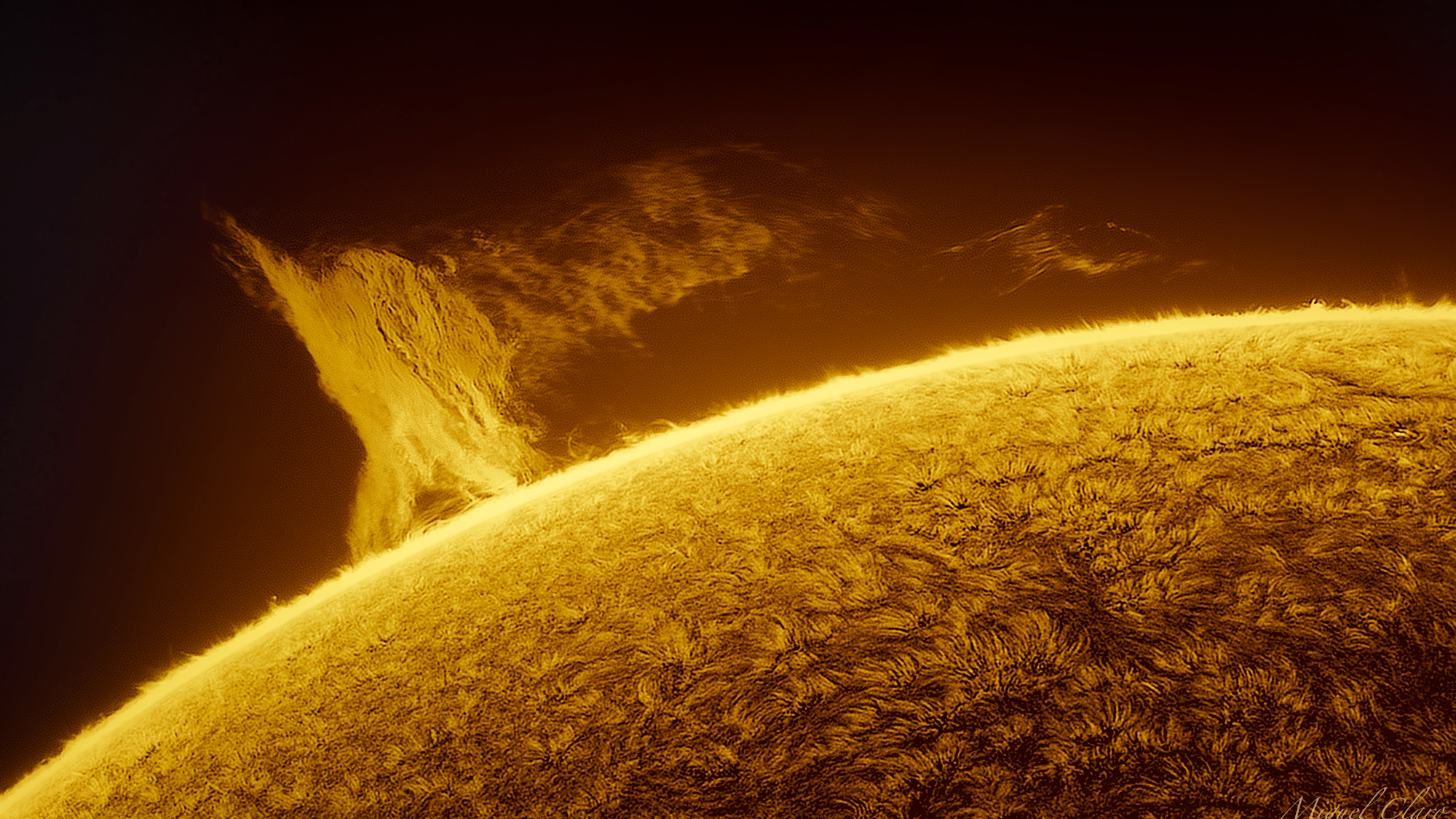Watch giant loop of plasma dance above the sun in stunning video
The loop-like structure is taller than 10 Earths stacked on top of each other.

Miguel Claro is a professional photographer, author and science communicator based in Lisbon, Portugal, who creates spectacular images of the night sky. As a European Southern Observatory Photo Ambassador and member of The World At Night and the official astrophotographer of the Dark Sky Alqueva Reserve, he specializes in astronomical "Skyscapes" that connect both Earth and the night sky.
A huge loop of plasma dances above the surface of the sun in a stunning timelapse captured by astrophotographer Miguel Claro.
The feature, known as a solar prominence, was visible on Feb. 6 and Feb. 7, 2022, Claro wrote on his website. The prominence then erupted, sending a giant cloud of plasma known as a coronal mass ejection (CME) out into space.
Related: Space weather: What is it and how is it predicted?
Claro observed the prominence carefully over those two days, capturing images that he then stitched together into a timelapse video showing the feature's behavior and evolution.
"The final result is a 4K high-resolution solar movie comprising around 2.5 hours for each day, with a total of 5 hours of images," he wrote.
"According to my measurements in pixels, the size of this prominence ... was about 10x the size [of] our planet Earth, in height, but stretching around the sun's limb for thousands of kilometers," Claro added.
Get the Space.com Newsletter
Breaking space news, the latest updates on rocket launches, skywatching events and more!
One of the prominence photos — the one featured as the lead image for this story — was recognized by the Royal Observatory of Greenwich's Astronomy Photographer of the Year 2022 competition, he said; the image received a "Highly Commended" distinction in the contest's "Our Sun" category.
Claro captured the timelapse video from Portugal's Alqueva Dark Sky Reserve using a QUY5III174M camera and a Sky-Watcher Esprit 120ED Professional telescope with a Daystar Quark Prominence filter. (REMINDER: Never photograph the sun, or look directly at it, without proper protection, such as solar filters or eclipse glasses.)
To see more of Miguel Claro's work, please see his website or follow his stories on Instagram at www.instagram.com/miguel_claro .
Editor's Note: If you snap your own photos of the sun or night sky and would like to share them with Space.com’s readers, send your photo(s), comments, and your name and location to spacephotos@space.com.
Join our Space Forums to keep talking space on the latest missions, night sky and more! And if you have a news tip, correction or comment, let us know at: community@space.com.









